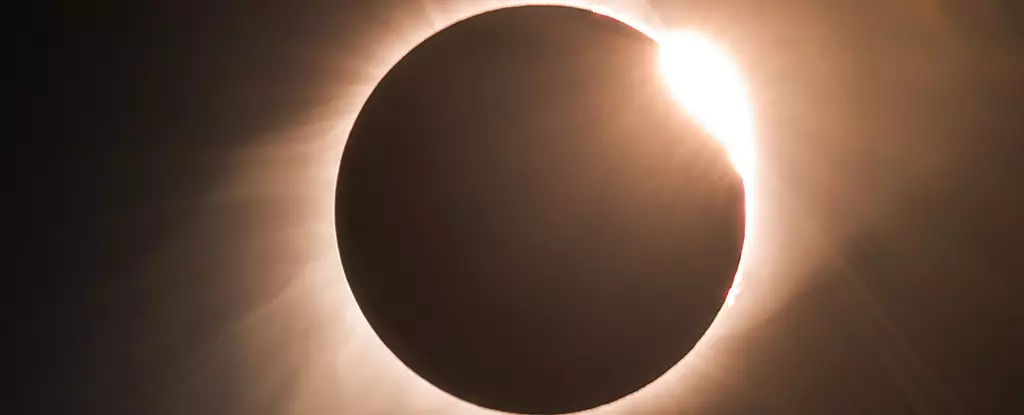Millions of people around the world are eagerly awaiting the upcoming total solar eclipse on April 8, 2024. This highly anticipated celestial event has captured the attention of the scientific community and general public alike. While solar eclipses are not uncommon, the 2024 eclipse holds a unique significance due to various factors such as its path across the United States, an abundance of solar activity, and a multitude of scientific projects planned to capture this extraordinary moment.
Unlike the partial eclipse witnessed in 2017, the 2024 eclipse will offer a more captivating experience for viewers in the United States. Stretching from Mexico to northeastern Canada, this eclipse will be the most populated in the country’s history, with an estimated 31.5 million people having the opportunity to witness it from their own homes. Major cities like Dallas, Cleveland, and Indianapolis will be perfectly positioned for prime viewing of the total eclipse, which will last approximately 3 to 4 minutes, slightly longer than the one in 2017.
For those who miss the 2024 eclipse, they will have to exercise patience and wait for several decades until similar event occurs. The next total solar eclipses visible in the contiguous US are predicted to take place in 2044 and 2045, but they will not pass through cities like Cleveland or Indianapolis. Therefore, the 2024 eclipse truly presents a once-in-a-lifetime opportunity for residents in these areas.
During the 2017 eclipse, the Sun was relatively calm. However, as it approaches its solar maximum, scientists are expecting increased solar activity during the 2024 event. The Sun has been producing solar flares, and there is even the possibility of witnessing a coronal mass ejection (CME) – a dramatic eruption of plasma from the Sun’s outer layer. A CME during the eclipse would be a spectacular sight, leaving viewers in awe as they witness the inky mass exiting the Sun. Furthermore, the occurrence of a CME could lead to heightened aurora borealis activity a few days later, providing an added bonus for skywatchers.
Solar eclipses hold immense importance for the scientific community due to the unique experimental opportunities they afford. In fact, a solar eclipse in 1919 proved Albert Einstein’s theory of relativity, highlighting the significance of these events in advancing scientific knowledge. The 2024 eclipse is expected to be the most observed total solar eclipse in history thanks to the collaboration between NASA and various institutions. Scientists will utilize radar, balloons, spacecraft, and jets to conduct experiments and collect invaluable data during the eclipse. NASA’s focus will be on monitoring changes to density, wind speed, and temperatures in the ionosphere, providing valuable insights into the Earth’s upper atmosphere.
Unlike the 2017 eclipse, where observations were limited to Earth-based instruments, the 2024 eclipse presents an unprecedented opportunity for study. NASA currently has two Sun-scrutinizing spacecraft in orbit around our star, offering the ability to monitor the Sun up close from multiple vantage points. This simultaneous data collection from space observatories and ground-based instruments promises to provide scientists with a more comprehensive understanding of solar eclipses than ever before.
In addition to the efforts of professional researchers, there are numerous citizen scientist projects that will enhance our understanding of the 2024 eclipse. NASA encourages the public to actively participate by using their Ham radios, telescopes, cameras, and phones to record images, sounds, and observations during the event. These collective efforts will contribute to a broader dataset and engage individuals in the wonders of the natural world.
The total solar eclipse of 2024 is poised to be a momentous occasion that will captivate millions of people. With its unique path across the United States, increased solar activity, and a plethora of scientific projects, this eclipse offers an exceptional opportunity for both scientific discovery and public engagement. As the date approaches, anticipation continues to build, and people are eagerly preparing to witness this extraordinary celestial event that will leave an indelible mark on their memories.


Leave a Reply